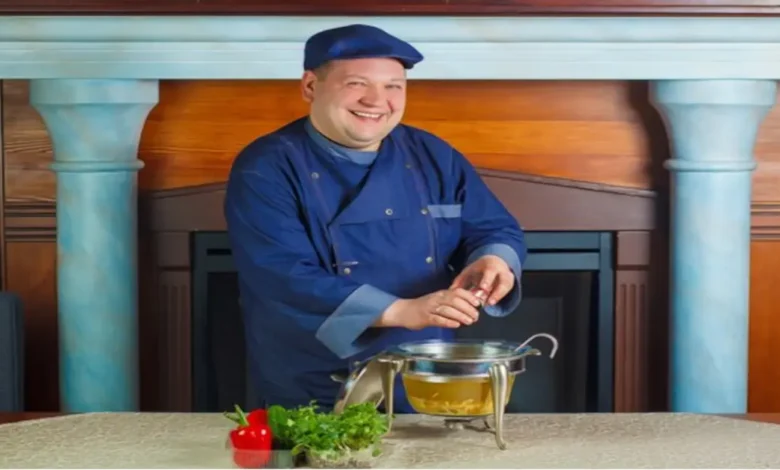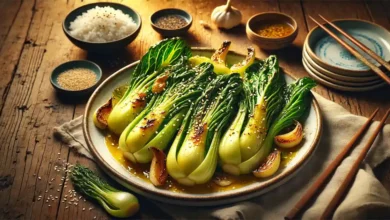The Ultimate Guide to Saucier MS: Exploring the Journey and Opportunities in Culinary Excellence
Mastering the Art of Sauces: The Journey to Becoming a Saucier MS in the Culinary World

The Saucier MS: A Prestigious Role in the Culinary World
In the world of haute cuisine, certain culinary titles and expertise distinguish the masters from the novices. Among these revered positions, the role of a Saucier MS (Master Saucier) stands out as one of the most prestigious. As a master of sauces, soups, and essential liquid components, the Saucier MS plays a pivotal role in the kitchen hierarchy, responsible for crafting the foundational elements that elevate a dish from ordinary to extraordinary.
A Saucier MS is not just a chef who knows how to prepare sauces; they are experts in the delicate art of balancing flavors, textures, and techniques to create perfect accompaniments for a wide range of dishes. This article explores the importance of the Saucier MS, the journey to becoming a master in this field, and the exciting career opportunities that come with this esteemed title in the culinary industry.
What is a Saucier?
A saucier is a culinary specialist who focuses on the preparation of sauces, gravies, soups, and other liquids that accompany dishes. This role is one of the oldest and most respected positions in the kitchen brigade system, often linked to French cuisine, where the mastery of sauces is considered an essential skill.
In modern kitchens, the saucier MS is expected to possess a refined understanding of flavor balance, cooking techniques, and ingredients. This role demands both creativity and precision, as sauces can completely alter the character and taste of a dish.
The Key Responsibilities of a Saucier
A saucier MS has several key responsibilities that make them an essential part of any professional kitchen:
- Sauce Creation and Mastery: From béchamel and hollandaise to demi-glace and reductions, the saucier crafts a variety of sauces that form the backbone of many dishes.
- Soups and Stocks: A saucier is also responsible for preparing flavorful soups and stocks, which require an understanding of aromatics, simmering, and reduction techniques.
- Flavor Balance: The ability to balance acidity, sweetness, saltiness, and bitterness is crucial in a saucier’s role. Each sauce and soup must be perfectly balanced to enhance the overall dish.
- Plating and Presentation: Sauces not only enhance the taste but also the visual appeal of a dish. A saucier must be skilled in the art of plating, using sauces to complement and highlight the main ingredients.
- Kitchen Management: While the focus is on sauces, a saucier often works closely with other kitchen staff, ensuring that the sauces and soups align with the overall theme and quality of the menu.
The Path to Becoming a Saucier MS
Achieving the status of saucier MS is no easy feat. It requires years of training, dedication, and experience. Here’s a step-by-step guide to the journey:
1. Starting with Basic Culinary Education
The first step to becoming a saucier is gaining foundational culinary education. This can be achieved through formal training at a culinary school or through apprenticeships. Key subjects include:
- Knife skills
- Food safety and hygiene
- Basic cooking techniques
- Kitchen terminology
A culinary school or professional training provides the foundation for advanced techniques like sauce making, and it also introduces students to the various types of cooking, from sautéing to braising.
2. Internships and Work Experience
To become a proficient saucier MS, gaining hands-on experience is essential. Most aspiring chefs start in entry-level kitchen positions, such as a line cook or prep cook, and gradually move up the ranks. An internship or apprenticeship in a well-regarded restaurant or hotel is a great way to get your foot in the door and develop practical skills.
During this phase, you’ll learn the core techniques required to work with sauces, including:
- Stock making
- Deglazing
- Emulsifying
- Reduction techniques
3. Mastering the Art of Sauces and Soups
The next step is focusing on sauce preparation. This stage involves mastering classic sauces like:
- Beurre blanc – A butter-based sauce, often served with fish.
- Velouté – A light, velvety sauce made from roux and stock.
- Espagnole – A rich brown sauce used in many French dishes.
- Béchamel – A creamy white sauce made from roux and milk.
A saucier MS must also understand how to create more complex sauces such as reductions, compound sauces, and flavorful gravies. The art of sauce making is both an intuitive and scientific process, requiring precision, timing, and creativity.
4. Learning from Experienced Mentors
Mentorship is one of the most valuable aspects of becoming a saucier MS. By working under the guidance of seasoned chefs and sauciers, aspiring professionals can learn intricate techniques, refine their palates, and gain the confidence needed to create exceptional sauces.
Mentors will also teach the importance of consistency and presentation. A well-prepared sauce should taste just as great every time it’s made, and it should complement the dish aesthetically.
5. Refining Your Skills and Pursuing Advanced Certification
To become a Master Saucier, many chefs pursue advanced certifications, like those offered by the American Culinary Federation (ACF) or similar organizations. These certifications validate your expertise and demonstrate your commitment to the craft.
- ACF Certified Executive Chef: This advanced certification includes a strong emphasis on kitchen management, which is key for a saucier MS.
- Advanced Sauce Making Courses: Some institutions offer specialized courses that focus exclusively on sauces, gravies, and soups.
6. Gaining Experience in High-End Kitchens
Once you’ve completed your training, it’s time to gain real-world experience. Working in high-end restaurants, hotels, or even Michelin-starred establishments provides exposure to a variety of cuisines and the opportunity to experiment with complex sauces and innovative techniques.
Here, a saucier MS is expected to demonstrate the ability to work under pressure while maintaining high standards of quality. The ability to juggle multiple orders, adjust sauces in real-time, and work seamlessly with other kitchen staff is key to success.
The Importance of a Saucier MS in the Culinary World
The role of the saucier MS goes beyond just making tasty sauces—it’s about understanding how the sauce interacts with the rest of the dish and elevating the entire dining experience. Here’s why this role is crucial in the culinary industry:
Flavor Profile Expertise
The ability to create sauces that complement and elevate other ingredients is a skill that requires deep understanding. A saucier MS is a flavor architect, expertly designing sauces that balance the natural flavors of meats, vegetables, and seafood. Whether it’s a rich, hearty beef stew or a delicate seafood bisque, the sauce is a key component that enhances the dish’s overall profile.
Creativity and Innovation
While traditional sauces remain staples in many kitchens, the saucier MS is also expected to innovate. This may involve creating new sauces that reflect modern culinary trends or experimenting with ingredients to develop unique flavors. A saucier can create signature sauces that distinguish a restaurant’s menu.
Technical Precision
Sauce making requires precision in every step, from selecting the right stock to knowing the exact time to stop reducing a sauce. This technical aspect of the job makes the saucier MS an indispensable member of any professional kitchen, ensuring that every sauce served is of the highest quality.
Visual Appeal
Sauces are not just about taste—they also enhance the visual presentation of dishes. A saucier MS must have an eye for detail, ensuring that sauces are plated beautifully and aesthetically complement the rest of the dish. Whether it’s a perfectly drizzled plate of pasta or a delicate pool of sauce under a roasted duck breast, presentation is key.
Career Opportunities for a Saucier MS
A saucier MS opens the door to a variety of exciting career opportunities. Some of the most promising avenues include:
1. Executive Chef
With years of experience and a master’s knowledge of sauces, a saucier MS may be promoted to executive chef, where they oversee kitchen operations and menu development. As an executive chef, you will not only be in charge of sauces but also be responsible for managing staff, budgeting, and ensuring quality control.
2. Restaurant Consultant
Experienced sauciers MS may become restaurant consultants, advising businesses on menu design, sauce recipes, and kitchen operations. Consulting allows you to work with various clients, from small eateries to large chains, creating innovative menus and teaching kitchen staff.
3. Culinary Instructor
With a wealth of experience, a saucier MS can also become a culinary instructor, passing on their knowledge of sauces and fine cooking techniques to aspiring chefs. Many culinary schools are always on the lookout for experienced chefs who can teach specialized skills, including sauce making.
4. Product Development Specialist
Many food brands hire expert chefs to develop new sauces, gravies, and ready-made meals. As a saucier MS, you could work with food manufacturers to create products that meet industry standards and consumer expectations.
Conclusion
Becoming a saucier MS is a rewarding and challenging path for anyone passionate about cooking. It requires a combination of technical skill, creativity, and dedication to mastering one of the most critical aspects of cuisine: sauces. Whether you’re crafting the perfect béchamel, experimenting with a new reduction, or elevating a dish with your signature sauce, the role of a saucier MS is integral to creating exceptional culinary experiences.
By following the path of education, hands-on experience, and continuous learning, you can achieve mastery in this field and enjoy numerous career opportunities, from working in prestigious kitchens to teaching the next generation of chefs. Whether you’re a beginner or an experienced cook, pursuing a career as a saucier MS could be the key to unlocking your full culinary potential.





